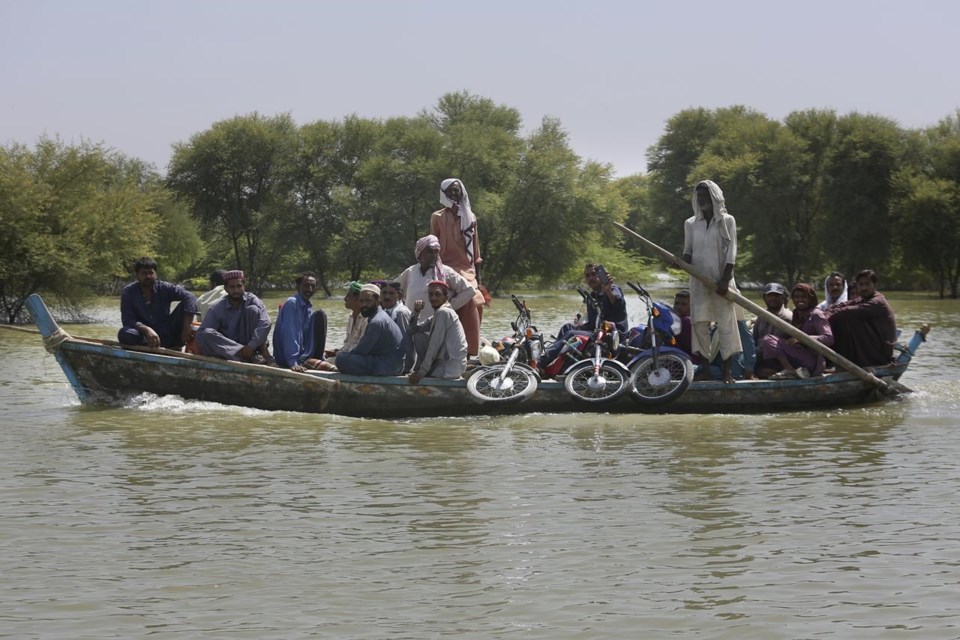ISLAMABAD (AP) — More than half of the flood victims in Pakistan’s worst-hit Sindh province have returned to their homes over the past three weeks as the waters there gradually receded, officials said Monday.
The announcement came as Prime Minister Shahbaz Sharif visited the district of Jaccobabad in Sindh, from where he traveled to the city of Sohbatput in another flood-stricken province, Baluchistan, his office said.
Floodwaters are gradually receding in both provinces and elsewhere in Pakistan, engulfed since mid-June in unprecedented monsoon rains and floods that have killed 1,719 people in the impoverished South Asian country. At one point in August, more than half a million people were living in tents across Pakistan.
The disaster management agency in Sindh said currently a little over 200,000 people are living in relief camps in the province, where the floods have affected 12 million people and killed 780.
The Indus River, which caused much of the devastations in Sindh, is now at normal levels, though authorities say it will take another two months to completely drain the water.
In Sohbatput, the prime minister urged irrigation experts and engineering crews to ensure that floodwater is drained as soon as possible so that people can return to a normal life. Sharif also expressed concerns about the spread of waterborne diseases.
Local authorities should provide free-of-cost seeds to farmers to help with winter crops, Sharif said and promised his government would financially help people rebuild the homes they lost in the floods. Later, Sharif visited a medical camp and a learning center set up for children in the city.
Waterborne diseases and skin infections are spreading in Sindh, where doctors have treated 30,000 people over the past 24 hours, the provincial health department said Monday.
Nationwide, the floods have affected 33 million people, damaged over 2 million homes, washed away thousands of kilometers of roads and destroyed 435 bridges. The overall fatalities have included 641 children and 345 women.
Several economists and government officials have said the cost of the disaster may reach $32 billion.
The United Nations humanitarian agency said over the weekend that 7 million women and children and women require immediate access to food and that around 5.5 million people have no access to safe drinking water. Around 8.2 million people in flood-affected areas needed urgent health services, OCHA said.
The U.N. in early October raised its call for $160 million to $816 million to help with the crisis.
For his part, Sharif has repeatedly asked developed countries — nations that experts say have impacted climate change the most — to scale up aid to his impoverished Islamic nation, where authorities say flood survivors will face a harsh winter this December.
Munir Ahmed, The Associated Press




